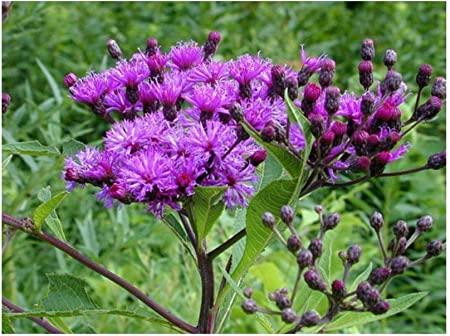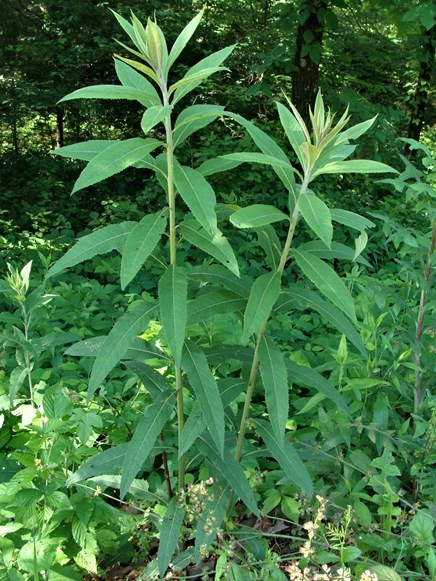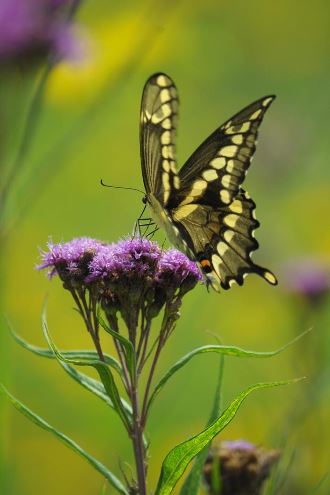One of the biggest plants in the mass of terracotta pots on my patio is
my clump of ironweed. And this week it’s starting to bloom.
Named for its tough stem, Ironweed has excellent upright form in the garden. The intense purple bloom color stands out in the summer landscape (July in Texas, later in cooler climates), attracting many butterflies and other pollinators. While this tall, stately plant occurs naturally in moist soils and tolerates brief flooding, it grows equally well in average garden soils. The plant height may be reduced by cutting back the stems in late spring but I like them tall – about three feet.
Ironweed can be an aggressive spreader by seed and may not be suitable for smaller gardens, but is very effective in background borders, cottage gardens, rain gardens and wildflower meadows. Self-seeding can be mitigated by removing some of the flower heads before they go to seed. However, the dark rigid stems topped with contrasting fluffy seed heads offer beautiful late season interest. I just let mine do what they do best – bloom and set seed!

|
The irony (pardon the pun) is that when I planted this I thought it was frostweed, which is an entirely different wildflower. The error was welcome, though, as frostweed has fairly plain white flowers, whereas ironweed’s clusters of fluffy purple flowers are unique and last a long time. And, given water from time to time in the hottest months, ironweed will stay erect and handsome, losing just a few of its lower leaves. It’s a true perennial and returns reliably every spring after winter dormancy.

|
I keep the pot containing this handsome fellow close to my steps so I can easily enjoy the delicate details of the flowers and admire the occasional big butterfly visitor. I’m hoping it spreads to other pots and to the general garden (and appear this year to have a second pot of them, volunteered). This is definitely the kind of flower you want in a native plants garden – sturdy and vigorous and beautiful!

|







No comments:
Post a Comment